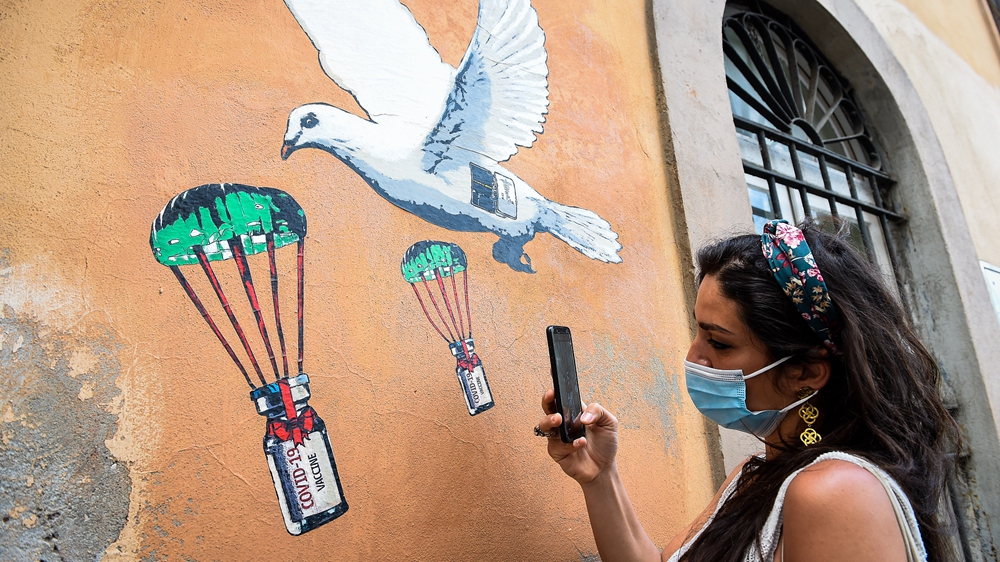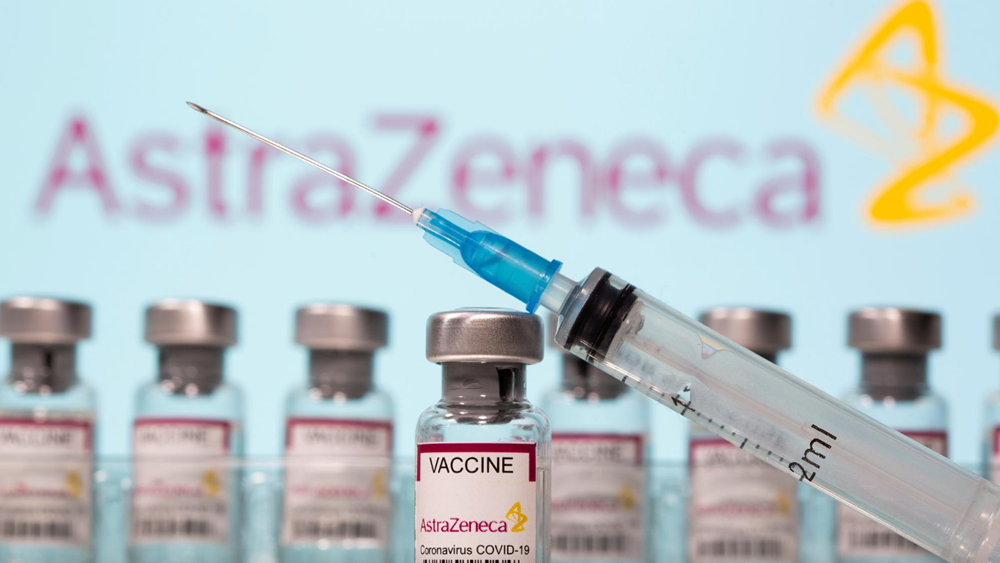
A new mural by street artist Harry Greb is posted in front of the Ministry of Health of Rome to wish Happy Easter with the arrival of the COVID-19 vaccines in Rome, April 3, 2021. /CFP
A new mural by street artist Harry Greb is posted in front of the Ministry of Health of Rome to wish Happy Easter with the arrival of the COVID-19 vaccines in Rome, April 3, 2021. /CFP
Italy recommended on Wednesday that AstraZeneca's COVID-19 shot only be used on those over 60 and Britain that people under 30 should get an alternative, due to possible links between the vaccine and very rare cases of blood clots.
More than a dozen countries have at one time suspended use of the vaccine, which has been given to tens of millions in Europe. But most have resumed, with some, including France, the Netherlands and Germany, recommending a minimum age.
European Union health ministers failed to agree common guidance on the use of the shot, despite calls for coordination across member states to combat public hesitancy over a vaccine set to be a key component of many vaccination programs.
Italy's health authority recommended that the shot only be used on people over 60 years old but said those under 60 who have taken a first AstraZeneca shot can also take a second one.
An official in Britain said the new advice by a government advisory group that other vaccines should be chosen for those under 30 where possible was "really out of the utmost caution, rather than because we have any serious safety concerns."
European regulators reiterated that they had found possible links between the vaccine and very rare cases of blood clots, but reaffirmed its importance in protecting people against COVID-19.

Vials labelled "AstraZeneca COVID-19 Coronavirus Vaccine" and a syringe are seen in front of a displayed AstraZeneca logo in this illustration taken on March 10, 2021. /Reuters
Vials labelled "AstraZeneca COVID-19 Coronavirus Vaccine" and a syringe are seen in front of a displayed AstraZeneca logo in this illustration taken on March 10, 2021. /Reuters
Rising infections caused by more infectious variants are threatening to overwhelm the hospitals of many EU countries – where the pace of vaccinations lags far behind Britain and the United States – forcing France and others to reimpose lockdowns.
The European Medicines Agency (EMA) received reports of 169 cases of the rare brain blood clot by early April, after 34 million doses had been administered in the European Economic Area (EEA), according to Sabine Straus, chair of the EMA's safety committee. The EEA comprises the 27 EU countries plus Iceland, Norway and Liechtenstein.
In comparison, four women out of 10,000 would get a blood clot from taking oral contraception.
In its statement, the EMA said it was reminding health professionals and recipients to remain aware of "the possibility of very rare cases of blood clots combined with low levels of blood platelets occurring within two weeks of vaccination".
"So far, most of the cases reported have occurred in women under 60 years of age within two weeks of vaccination," it added.
It did not issue any new guidelines, saying European countries should make their own decisions about how to handle the risk.
AstraZeneca's shot is sold at cost, for a few dollars a dose. It is by far the cheapest and most high-volume launched so far, and has none of the extreme refrigeration requirements of some other COVID-19 vaccines, making it likely to be the mainstay of many vaccination programs in the developing world.
AstraZeneca said it was working with the British and European regulators to list possible brain blood clots as "an extremely rare potential side effect."
Source(s): Reuters

